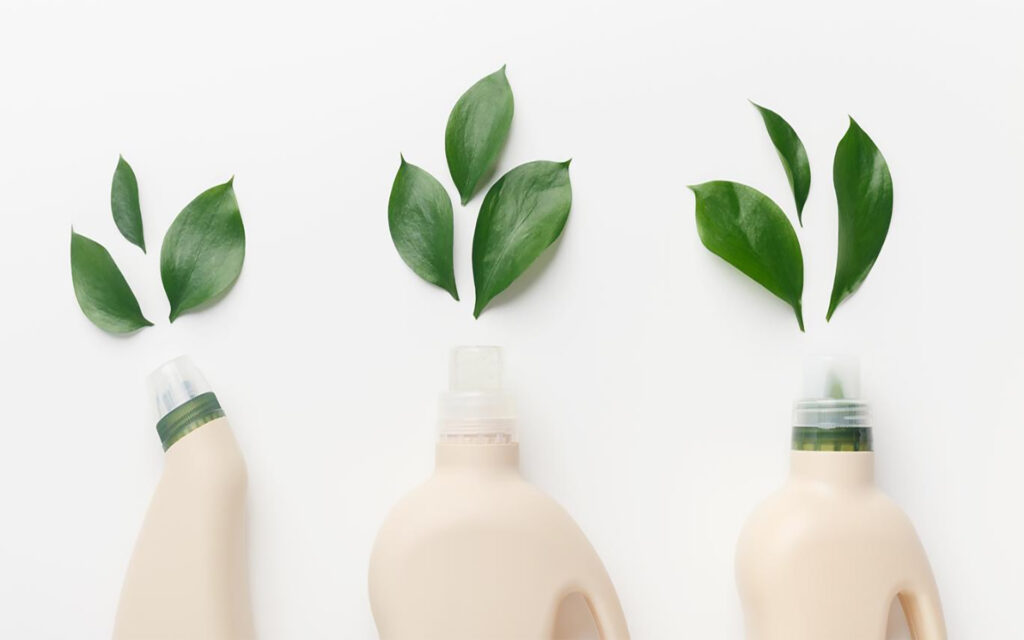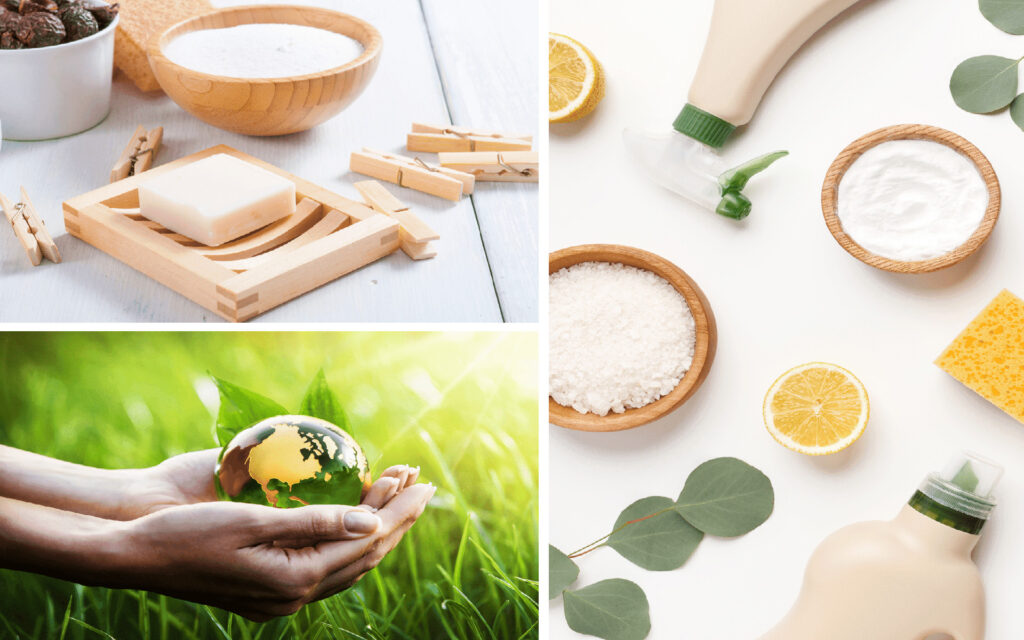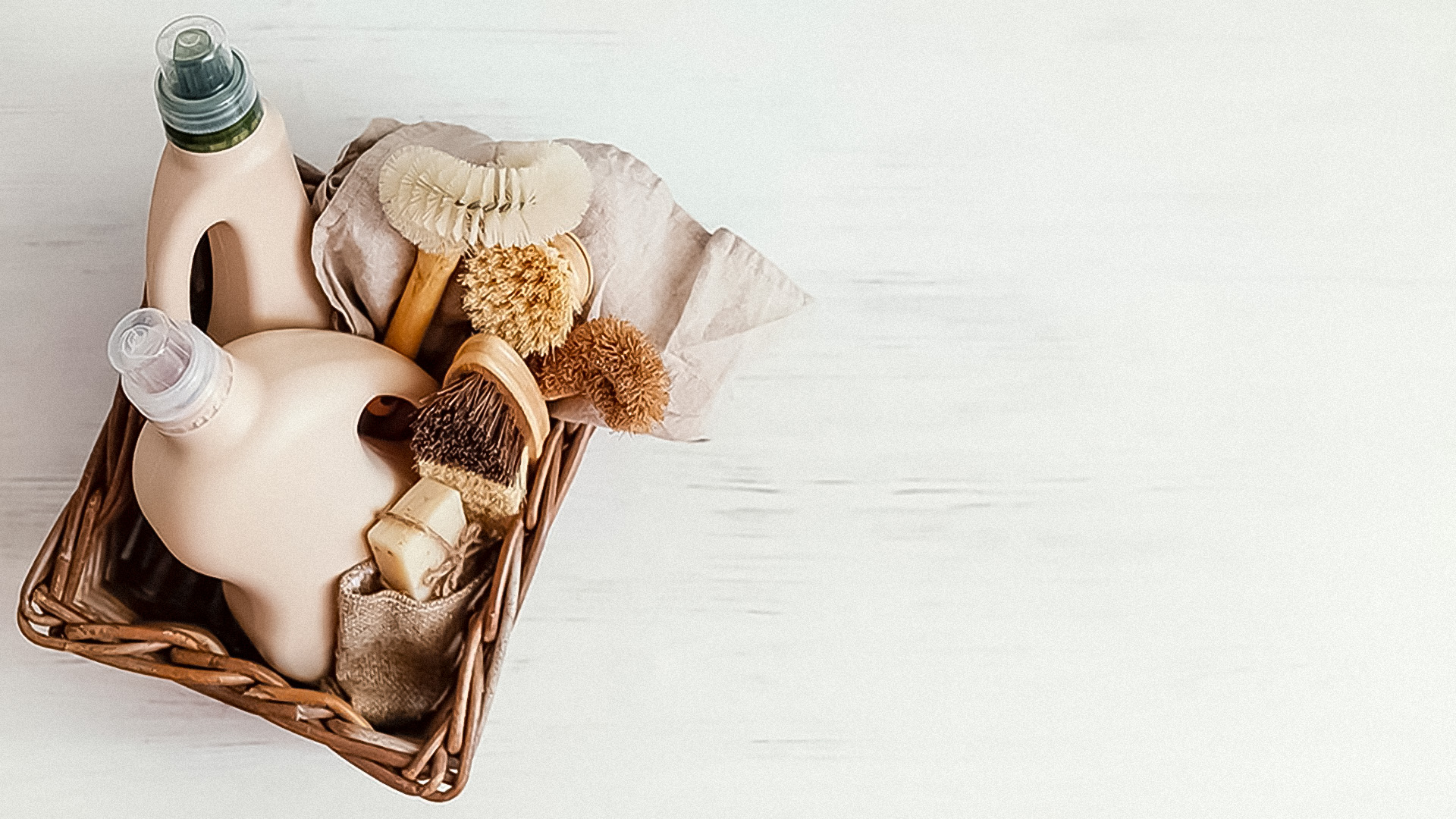Detergents and hygiene products are used in everyday life for washing and caring for clothes and cleaning many surfaces around the house. Generally, they have strong and artificial perfumes, added to many chemicals whose origin and potential harm are unknown to us. We only need to read the danger indications on the labels to get an idea of what we are using in our homes every day.

What do we look for when we buy cleaning products? We want them to remove dirt, disinfect, and leave a pleasant scent in the house and on clothes. But what about their adverse effects on health and the environment, and is there a more environmentally friendly type of detergent?
Detergents are synthetic products containing petroleum-based substances, dyes, perfumes, brighteners, enzymes, and chemicals. Most of them contain toxic elements, such as phosphate or chlorine. Phosphates are mainly composed of phosphorus and oxygen and are used to soften water and prevent mineral build-up on surfaces. The European Union has a detergent regulation, which sets out the standards to be met before these products can be marketed.
Various types of detergents on the market
Liquid detergent. This type is the most versatile, dissolves easily, and leaves no powdery residue on the clothes or surfaces. It also leaves no residue in the washing machine, which guarantees a longer life. It works best at removing grease or oil stains and washes equally well in cold or hot water. One of the disadvantages of these detergents is that their plastic containers are rarely recycled and end up in large landfills. In addition, their formulation contains toxic ingredients that contaminate water and soil.
Powder detergent. This type of soap is just as effective as liquid soap. However, it is usually cheaper and more effective against stubborn stains. In addition, many of them are packaged in cardboard boxes, which are considered more environmentally friendly than plastic containers. Some of them contain oxygen bleaches that liquid detergents do not have, which gives brightness and whiteness to the clothes.
However, this type of detergent can leave traces and marks on dark clothes, produces greater wear on the garments, is abrasive, and accumulates in the washing machine, even ruining it.
In third place are detergents in capsules. These are concentrated liquid cleaners contained in a soluble resin that dissolve on contact with water. These containers have a long shelf life, but are highly toxic. Many poisonings have been reported in children and pets due to their attractive appearance and fragrance.
Finally, there are biodegradable detergents that can be found in powder, liquid, gel, capsules, or eco-sheets. These types of cleaners are of vegetable origin and are formulated with surfactants (from living organisms, bacteria, yeasts, and fungi), derived from natural oils and fats that reduce the surface tension of water and allow the formation of bubbles. They are products of vegetable origin or bioproducts. Their formula may contain essential oils, dyes, and natural fats. They do not contain synthetic components or preservatives, which means that they do not leave contaminating or harmful residues in the water or soil.

This type of cleaner also does not contain sulfates, chemicals that have been present in hygiene and cleaning products since 1930. Sulfate is not biodegradable and therefore contaminates water.
Biodegradable detergents are hypoallergenic, water-soluble, and do not leave traces on clothes that can be transferred to the skin and cause dermatological problems. In addition, they are powerful cleaners. They have no filler ingredients such as starch and perform well in cold or hot water washes. Eco foils, for example, are easy to transport, are composed of biodegradable vegetable ingredients, and are non-toxic. Therefore, they are safe for people, and the environment and help reduce the carbon footprint.
Another benefit is their effectiveness, as less product is needed for cleaning or laundry. They have mild and pleasant fragrances (citrus, lavender), without the chemical odors of traditional cleaners. Also, many of the containers are biodegradable, compostable, or are designed to be reused and refilled like glass containers.

In addition to all that, this type of organic detergent has different uses, such as dishwashing, floor, bathroom, and kitchen cleaners. It does not deteriorate the washing machine or sink pipes, as it does not leave accumulated residues.
Most important of all, by using this type of cleaner you are contributing to reducing the carbon footprint we create when we move, consume, clean, and feed ourselves. This will make you feel more committed to the environment and without a doubt, this is the best option among the cleaners offered in the market.
Therefore, when buying cleaning products, check the labels and make sure you consume healthy, natural, and ecological products for the good of all of us who live in this world.





